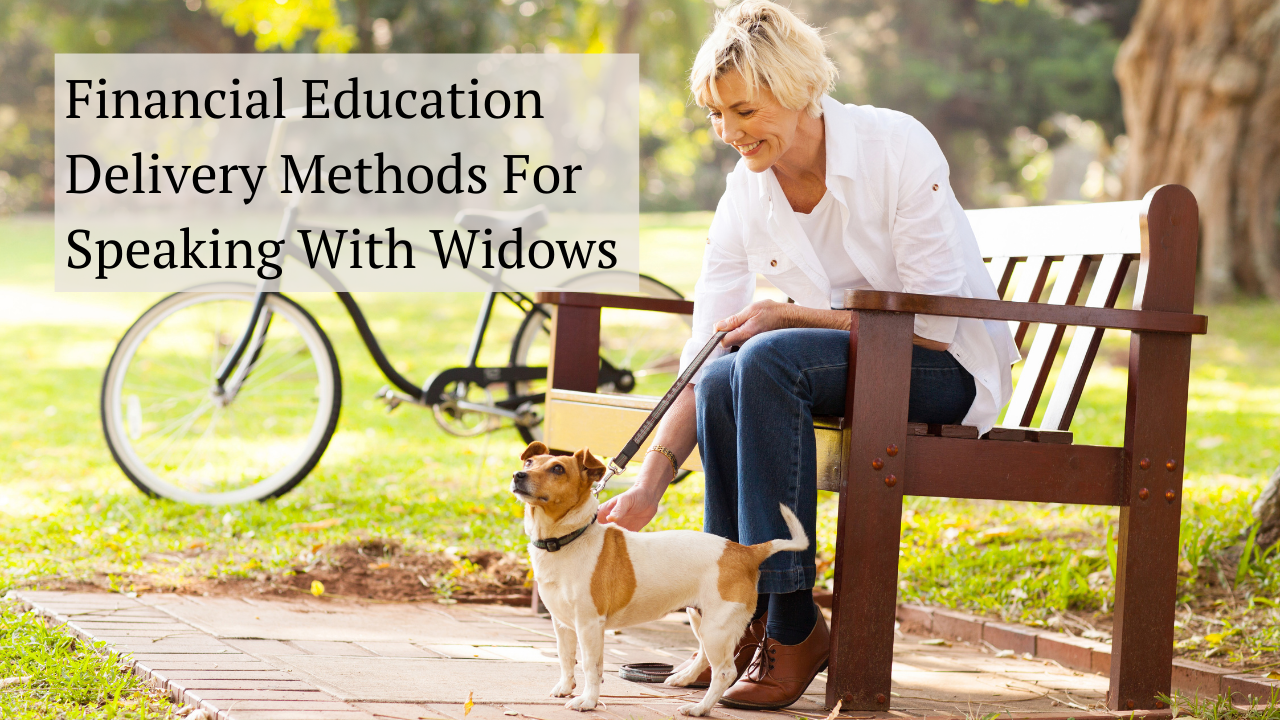Financial Education Delivery Methods For Speaking With Widows
May 24, 2021
So today, I want us to think about financial education delivery methods, because how many ways can we get information? If I want to look up financial literacy or investments, I can do it online. I can sign up for a course, a blog, a podcast. I can read an article. I can watch a webinar. But really what do women want? And more importantly, what do widows need in this transitional time? Because, when you work with widows, it's different. The sooner you accept that they are your current and your future client, you will start to relate to them better. Because the reality is, the average age of a widow is 59, and when we talk about the huge amount of wealth that is happening right now, we think about Baby Boomers. It is one of the biggest times in America where it's the wealthiest generation, and this generation will pass down those assets over the next few decades. So the Baby Boomer generation was 1946 to 1964, and they're all aging.
So, in 2021, right now, Baby Boomers range from 56 to 75. We had a baby boom and we're going to have a death boom, and widows are going to be a big portion of that transitional wealth. So it's very clear that there's a need, but now we want to find the avenue, the best avenue, of how to get them the information and help that they need. Because it's very clear in the literature that Boomer women, Boomer widows, they want a different experience with their financial or wealth advisor. In a study that I was looking at by Brian Korb, he interviewed financial advisors and their current widowed clients. And here were a few takeaways when it came to financial education and how to provide it. One thing that was clear is providing generic information in writing is the least effective. Widows want an in-person workshop format. They want it frequent and consistent, but in shorter duration. So shorter sessions over a longer period of time versus that long bore me to death session. We've all been there. I'm a college professor. I've seen the look in their eyes.
Next, they want it tailored specifically to them. We like that unique, one of a kind boutique experience. We don't need the quick fix one size fits all, I can order it on Amazon Prime. That's not what we're looking for. We are looking for community. We want a workshop that has active group participation, interactive, social, and fun with other widows. And lastly, we'd love personalized materials to take home with us that are specific to our needs. This would be a great opportunity in those short sessions to do homework assignments so that widows could come back the next time and answer more questions. Because financial education and for widows to have confidence and competence in managing a different set of wealth needs that they had is going to be pretty daunting at first. And overall, the formats need active participation. They need personalized materials given with a sense of community and support.
So I've been a teacher for 20 plus years and this is what I know to be true, is that when you want engagement with your audience, you've got to help them engage and interact with one another first, then interact and engage with you, and lastly, engage with the content. That's how you are going to set widows up for success in a workshop. And here's a quote to leave you with. It's from an unknown source and it says this. "If you are willing to do more than you are paid to do, eventually you will be paid to do more than you do." Have a beautiful day and I look forward to visiting again.
Cheers.

